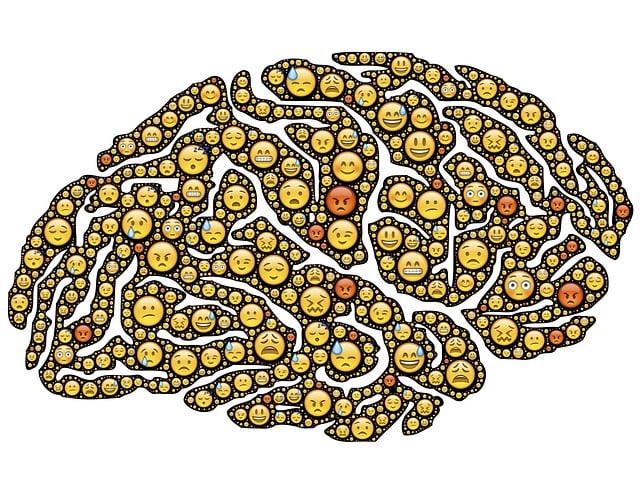Mental wellness is crucial for managing chronic illnesses, impacting stress, decision-making, and social interactions. Lone Tree Chronic Illness Therapy employs evidence-based Emotional Well-being Promotion Techniques through professional therapists offering safe spaces for emotion processing and stress management. Daily self-care practices, structured routines, physical activity, adequate sleep, and balanced diets enhance resilience. Community outreach programs and support groups build supportive networks, reducing isolation and stigma, fostering open conversations, and encouraging help-seeking without fear of judgment, ultimately aiding long-term well-being. Lone Tree Chronic Illness Therapy is a vital resource for promoting robust mental fortitude.
Mental wellness is a cornerstone of overall health, especially for managing chronic illnesses. In this article, we explore how Lone Tree residents can navigate their mental health journey. We delve into understanding mental wellness and its profound impact on chronic illness management. Discover the transformative power of therapy tailored to Lone Tree needs, effective self-care strategies, and community building for a supportive network. Empower yourself with insights to enhance your mental wellness alongside managing chronic conditions effectively.
- Understanding Mental Wellness and Its Impact on Chronic Illness
- The Role of Therapy in Promoting Mental Health for Lone Tree Residents
- Strategies for Daily Self-Care and Stress Management
- Building a Supportive Community for Better Mental Wellness
Understanding Mental Wellness and Its Impact on Chronic Illness

Mental wellness is a crucial aspect of overall health and well-being, encompassing emotional, psychological, and social well-being. It affects every area of our lives, including how we handle stress, make choices, and relate to others. When individuals struggle with mental wellness issues, it can significantly impact their chronic illness management. For instance, someone living with a lone tree chronic illness like arthritis might experience heightened stress and anxiety, leading to increased pain and inflammation.
Promoting mental wellness is essential for managing chronic illnesses effectively. The Cultural Sensitivity in Mental Healthcare Practice approach emphasizes the importance of understanding diverse cultural backgrounds and beliefs to provide inclusive care. This can be particularly beneficial for marginalized communities seeking support. Additionally, initiatives like Mental Wellness Podcast Series Production or Stress Management Workshops Organization can empower individuals with tools to enhance their mental resilience, enabling them to navigate challenges associated with chronic health conditions more effectively.
The Role of Therapy in Promoting Mental Health for Lone Tree Residents

For residents of Lone Tree dealing with chronic illnesses, therapy plays a pivotal role in promoting mental health and well-being. It provides a safe space to process complex emotions, cope with stress, and develop effective strategies for mood management. Professional therapists offer evidence-based Emotional Well-being Promotion Techniques tailored to individual needs, helping clients navigate challenges associated with their illness while fostering resilience.
Regular therapy sessions contribute to robust risk management planning, empowering Lone Tree residents to proactively address mental health concerns. Through therapy, individuals gain insights into triggers, learn coping mechanisms, and build adaptive skills to enhance overall mental fortitude. This proactive approach not only supports current mental health but also equips individuals with tools to prevent potential crises in the future.
Strategies for Daily Self-Care and Stress Management

In the pursuit of mental wellness promotion, incorporating daily self-care practices is a powerful tool to combat stress and nurture resilience. Individuals, especially those managing chronic illnesses, can greatly benefit from establishing structured routines that prioritize their emotional well-being. Simple yet effective strategies include dedicated time for relaxation, such as mindfulness exercises or engaging in hobbies, which help reduce anxiety and foster a sense of calm. Regular physical activity, adequate sleep, and a balanced diet also play pivotal roles in stress management, ensuring individuals feel energized and equipped to handle life’s challenges.
For mental health professionals, integrating these self-care practices into their routine is not just advisable but essential for effective risk management planning. By practicing what they preach, therapists, counselors, and support staff can enhance their compassion cultivation abilities, improving patient outcomes. Additionally, community outreach program implementation can extend these wellness strategies to a broader scale, fostering collective mental resilience and offering much-needed support to those facing solitude or chronic conditions like Lone Tree Chronic Illness Therapy.
Building a Supportive Community for Better Mental Wellness

Building a supportive community is a powerful strategy for enhancing mental wellness and promoting healing. This aspect is particularly crucial in areas like Lone Tree Chronic Illness Therapy, where individuals facing long-term health challenges require not just medical support but also emotional nourishment. A thriving community can offer a safe space for people to connect, share experiences, and provide mutual aid. Through group therapy sessions or support groups, members can foster a sense of belonging, reducing feelings of isolation often associated with mental illness. This social network can also facilitate the development of coping skills, where individuals learn from one another, exchange strategies, and build resilience.
Moreover, community initiatives focused on Mental Illness Stigma Reduction Efforts play a pivotal role in creating an environment where everyone feels understood and accepted. By fostering open conversations and educating the public about mental health, these efforts contribute to Self-Esteem Improvement. When individuals feel empowered to discuss their experiences without fear of judgment, it strengthens their sense of self-worth and encourages them to seek help when needed. A supportive community becomes a powerful tool in navigating mental health challenges, offering not just practical solutions but also emotional support and encouragement for long-term well-being.
Mental wellness is a vital aspect of overall health, especially for those managing chronic illnesses. By understanding the impact of mental health on physical well-being, as highlighted in this article, Lone Tree residents can empower themselves to seek therapy and adopt daily self-care practices. The strategies discussed, including community building, offer practical ways to navigate stress and promote resilience. Encouraging open conversations about mental wellness and fostering a supportive environment through initiatives targeting Lone Tree chronic illness therapy can significantly enhance the quality of life for individuals facing mental health challenges.











